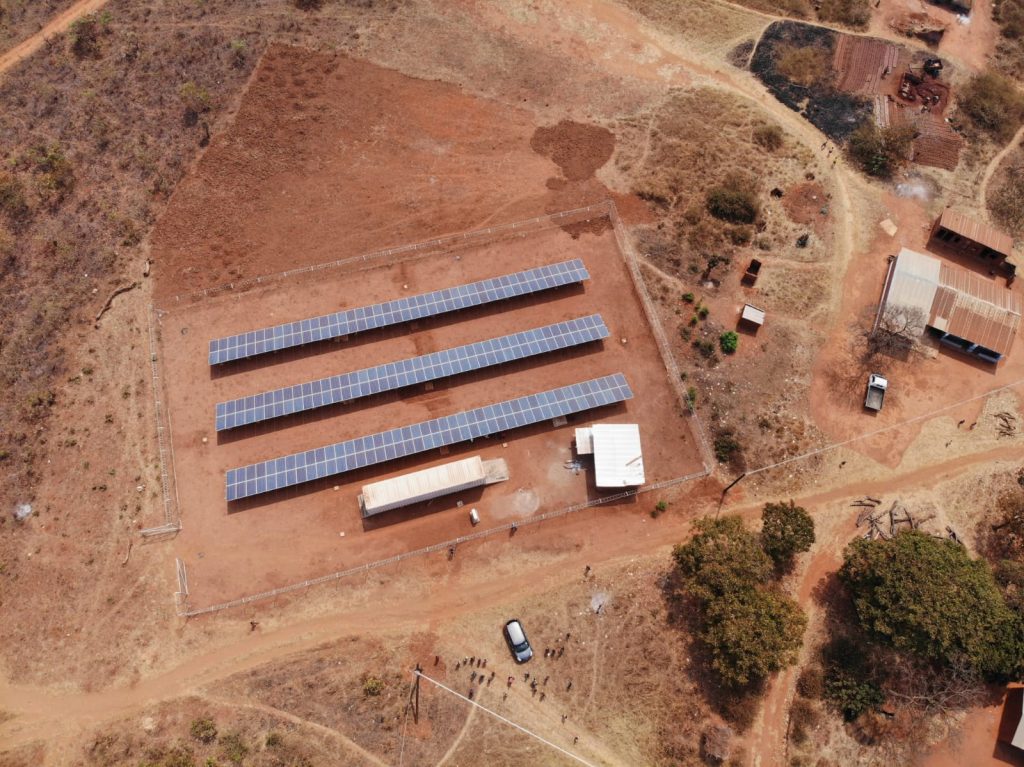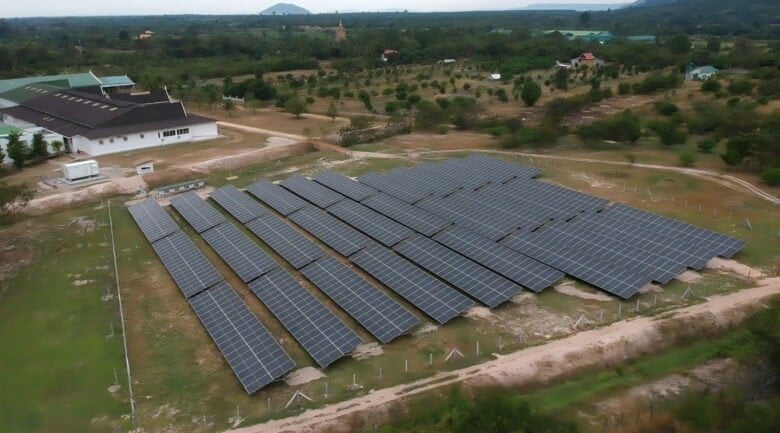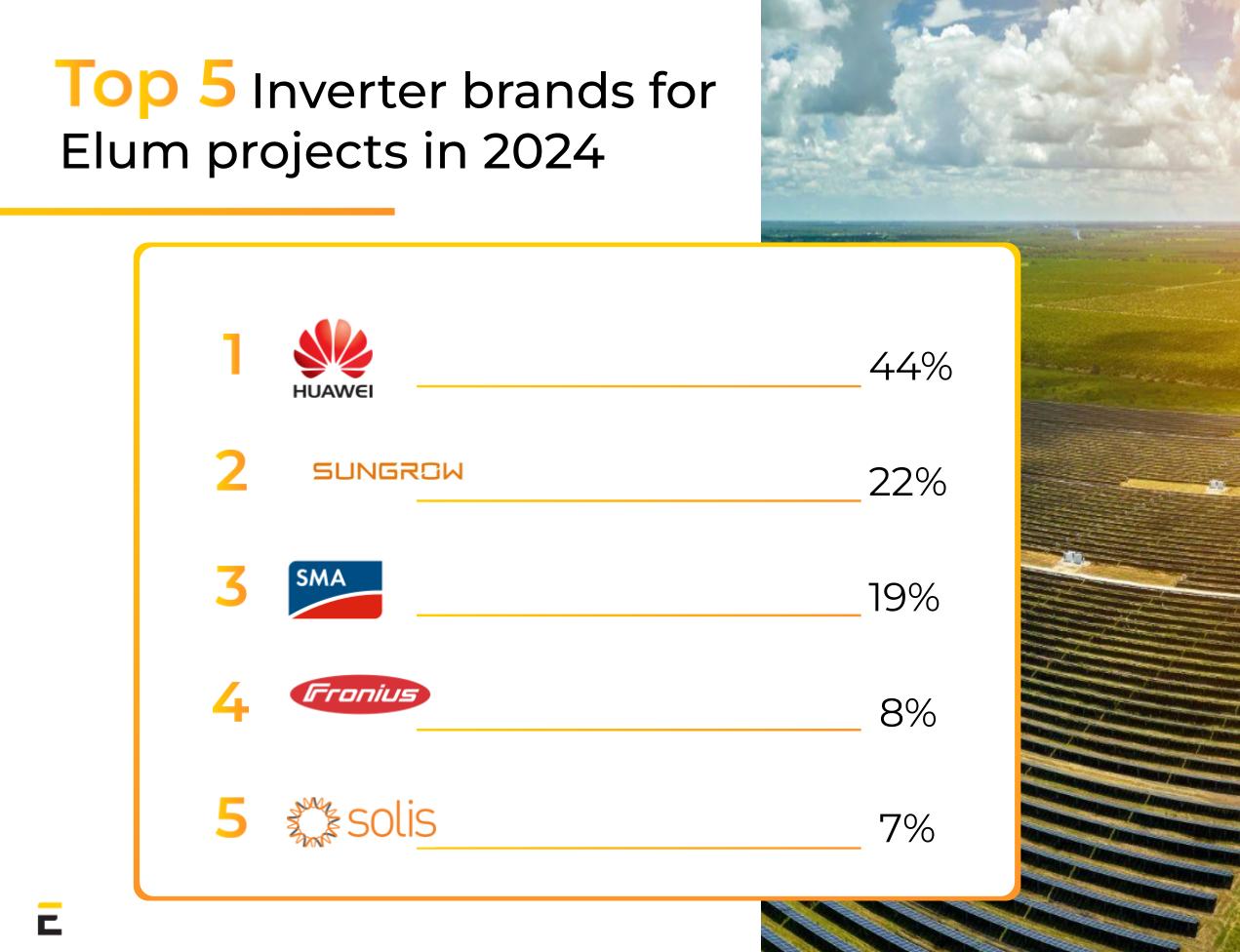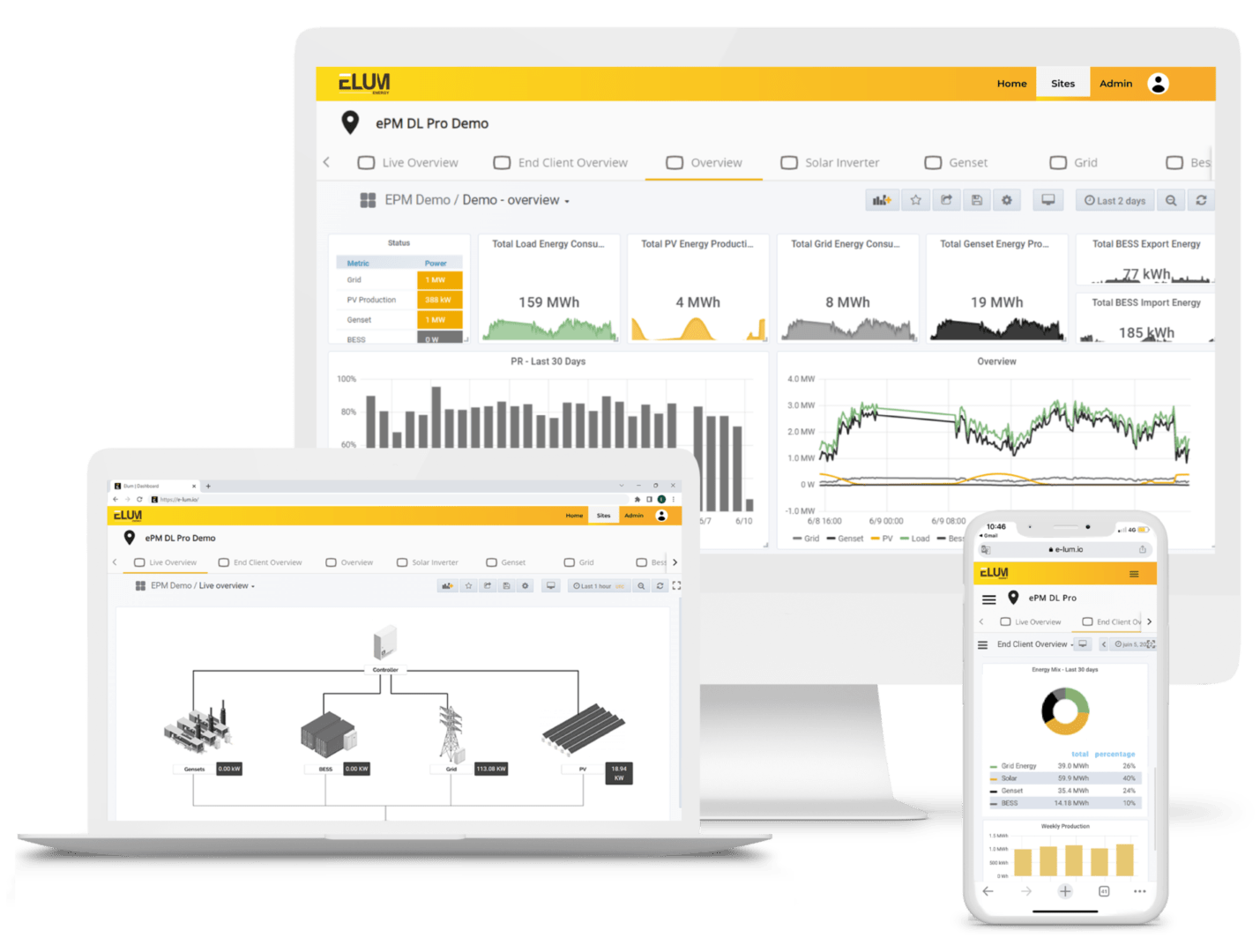What is a Microgrid & What Are the Advantages of Energy Storage Systems?
For solar developers seeking greater self-sufficiency, integrating energy storage systems is a logical step. In microgrids already benefiting from low-cost solar power, adding battery storage helps address the challenge of renewable energy intermittency while further reducing energy costs. To understand what are the advantages of energy storage systems, it’s important to look at how they enable cost savings, grid stability, and long-term sustainability.
Discover how monitoring and control solutions help to ensure Battery Energy Storage Systems (BESS) operate with maximum reliability and efficiency, transforming storage into a true performance asset.

What is a Microgrid?
A microgrid is a localized energy distribution network designed to be largely self-sufficient in both production and supply. It relies on nearby sources of electricity generation, and is therefore well suited to a range of contexts from well-connected regions to poorly served grids and fully isolated projects. With the growing need of energy storage system integration, microgrids can better handle intermittency and maintain reliable power. Understanding what are the advantages of energy storage systems in this context highlights how batteries enhance stability, efficiency, and long-term sustainability. While a microgrid can operate in parallel with the national grid, it may also be designed to run entirely independently.
To learn more about how hybrid solar microgrids work and their advantages, see our article on What Is a Solar Hybrid Microgrid?
Why Install a Battery Energy Storage System for Microgrids?
The concept of microgrids is being adopted at scale by independent users seeking greater energy autonomy. Yet, microgrids face inherent limitations, such as renewable energy intermittency and power factor mismatch which can hinder overall performance.
Battery Energy Storage Systems (BESS) mitigate these challenges by stabilizing energy production and improving reliability, helping microgrids reach their full potential. The exact benefits of BESS vary depending on grid conditions and energy economics, which we explore in the applications below.
For a deeper dive, see our guide: Everything a Solar EPC Should Know About BESS for Power Plants
Benefits of Energy Storage Systems: 4 Main Applications
The benefits of BESS depend on the system configuration, which is mainly influenced by grid reliability and energy prices, as well as which areas need grid tied battery storage systems most.
BESS for grid-tied application
For grid-tied applications, where the microgrid is connected to the main grid, BESS systems can help owners to reduce their bills. In developed countries, although the supply of electricity is ensured, there is a major difference between prices during the off-hours and peak-hours. Users can reduce their bills by shifting their load to microgrids during peak hours.
Owners can avoid penalties by energy companies by reducing their load when their demand is above the maximum power purchase value. BESS systems can also be used to regulate power factor in order to avoid cos-phi penalties.
BESS for grid-tied applications in regions with expensive energy rates
In some countries, buying energy from the national grid is in fact more expensive than storing self-produced energy. For example, in Puerto Rico, the grid quality is average but the main aim of the users is to reduce the energy bought from the national grid. People prefer to produce their own energy and store it. The energy from the main grid has become a secondary choice or more of a back-up option.
BESS for unreliable grid application
In countries like South Africa, where the national grid is not reliable at all and frequent black-outs and load-shedding is a norm, people tend to use microgrids with the aim of becoming self-sufficient in terms of energy demand. BESS proves to be a source of reliable backup during hours of load-shedding.
BESS for off-grid application
Lastly, off-grid microgrids are established in rural areas or isolated sites where the cost of providing electricity is too high. Microgrids are established in such areas to avoid costly infrastructure to connect the area with the national grid, for example rural areas of Africa or mountainous regions of China. Battery Energy Storage Systems are ideally suited for such applications where they are used to store energy and provide it according to the demand.
In addition, integrating an energy storage controller can further enhance the efficiency and performance of BESS. An energy storage controller manages the charging and discharging processes of the batteries, optimizing energy usage and extending battery life. This ensures that the energy storage system operates at peak efficiency, providing reliable backup power and reducing overall energy costs.
Elum Energy's Solution for BESS
Elum Energy offers a range of control and monitoring solutions for Energy Storage Systems, tailored to the diverse requirements of microgrids. By deploying Elum’s products, operators can improve reliability, efficiency, and flexibility, adapting to the wide range of grid connection conditions found across different countries.
At the core of this offering is Elum’s ePowerControl ES, a fully standardized energy management system dedicated to Battery Energy Storage Systems (BESS). It can also be coupled with other energy sources such as PV or diesel generators. Designed for small- to medium-scale applications, ePowerControl ES provides a smart, plug-and-play, and cost-effective solution for managing storage. Its advanced control algorithm enables installers to select the most appropriate charging strategy, maximizing PV penetration, extending battery life, and reducing diesel consumption.
Beyond battery management, efficiency can be further enhanced through the integration of a solar controller. By regulating the voltage and current from PV panels to the batteries, the controller ensures optimal energy storage and use. This integration not only captures the maximum possible energy but also minimizes waste and improves overall system reliability.

the solar industry?
Karim El Alami is Managing Director of Elum Energy, an energy automation company providing turnkey power plant controllers and microgrid controllers for solar plants coupled energy storage systems and thermal generation in more than 60 countries so far. Karim graduated from Ecole Polytechnique in France and UC Berkeley in California.







